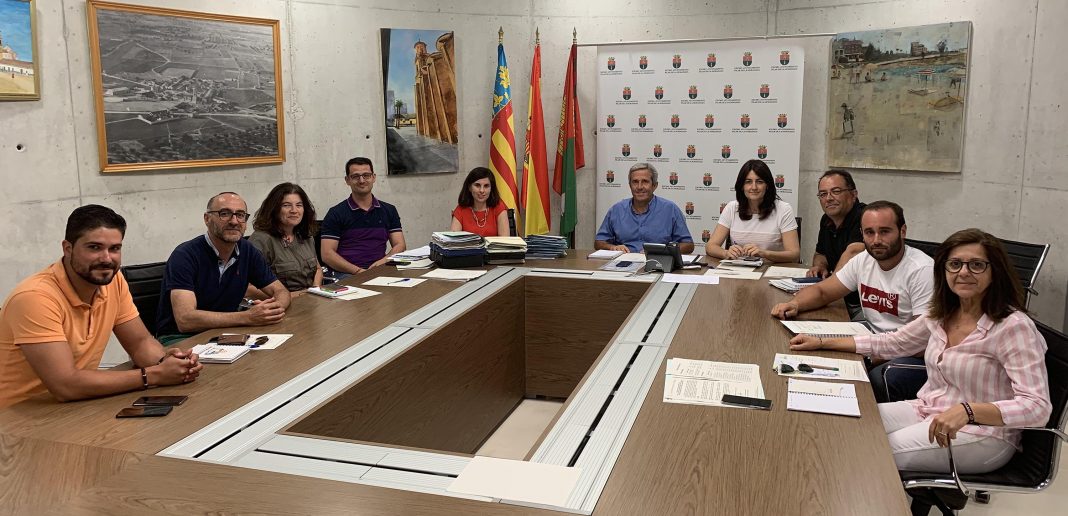A little more than a month since the formation of many municipal governments across the region following the elections of May 26 and the post-election pacts, and the most important decisions have now been made, the areas of responsibility of councillors and the salaries that they will receive and in all cases they have been increased.
Of course the rises vary enormously across the municipalities but in over 10% of the new administrations the salaries of the mayors have been increased by 60%. So much for the economic crisis, particularly if you are a politician in the Vega Baja.
Guardamar del Segura is where there has been the largest increase in the salaries of councillors. The mayor, José Luis Sáez (PSOE), has given his full time councillors a pay rise 63% which sees their annual go from 27,000 gross euros per year to 44,000 euros. The mayor himself will only receive 26% more over the next four years, 48,000 euros a year, 10,000 more than in the last mandate that began in 2015.
There is a similar story in Pilar de la Horadada where the PSOE has denounced the salaries of the government team which will add 425,000 euros per year to the government wage bill.
The PP has an absolute majority of course so it alone has approved the remuneration of 3,700 euros per month for the mayor, José María Pérez, 3,200 for the three full-time councillors and six partial salaries of 2,571 euros per month each. Councillors in opposition, meanwhile, will receive just 500 euros per month which the PSOE claims will establish two categories of councillors, those in ‘business class’ and the rest who will spend the next 4 years in ‘tourist class.’
In Algorfa, a municipality with less than 3,000 inhabitants, the socialist Manuel Ros will pay himself 39,000 euros gross per year (it was 35,000 in 2011), while councillors serving in the government will receive 28,000 for a full time position, 21,000 euros for the two councillors who will work for 75% of the day and 12,000 for the councillor who will work part time.
In Catral, a municipality of 8,600 residents, the salaries of politicians have also invited criticism. Both the mayor, Inma Úbeda (PSOE), and the first deputy mayor, his partner in government, Juan José Vicente, will each receive 35,000 euros a year, 5,000 more than last term, a mouth-watering increase of 15%. The two politicians will change roles mid-term.
In Rojales, the pay rises are even greater, with the socialist mayor, Antonio Pérez, deciding to raise councillors salaries by 22% and those of the spokespersons of the three opposition groups (PP, Pader and Cs ) by no less than 60%. However the mayor himself will not draw a salary, surviving, he says on his income as a pensioner, which is “less than what my councillors are going to earn.”
The pay rises will mean that seven of his councillors will receive 2,700 gross euros per month (37,800 euros per year in 14 payments), increasing from the 2,200 they charged just over a month ago. The one additional councillor who will work 28 weekly hours will have a salary of 2,200 euros per month.
The mayor justifies the increases in that “they are reasonable and fair salaries for the responsibility and work that the councillors have and while the law allows us to raise the salaries up to 3,790 euros per month we have decided on 2,700.”
In addition, the three opposition spokespersons will see their salaries increased by500 euros per month, going from the 700 to 1,200 for a minimum weekly dedication of 14 hours.
In Redován, the opposition of Unidas Podemos has also criticised the increase in municipal salaries and the fees for assistance to collegiate bodies. In a statement they say the rise is 43%, which the government team denies. The spokesman for the PP, Adrián Ballester, said that the mayor, Nely Ruiz, will earn only 200 euros more per month (1,500 to 1,700), 23,800 gross euros a year and three part time councillors will earn 1,300 euros.
In Torrevieja there was also controversy after the PP government team announced that they have awarded themselves an increase of 10% (they will charge 3,200 euros a month compared to the 3,000 in the previous mandate while the deputy mayor will earn 3,400 , 200 euros more).
And in Benejúzar the deputy mayor, Rosa Ballester, will be paid a salary of 33,189 euros a year, while her partner in the PSOE government, the mayor Miguel López, will not take a salary as he is awaiting approval as a provincial deputy, from which he will earn a sum, rather more substantial.
“We have actually reduced salaries by 10%,” he announced.





